18 Everyday Superstitions Americans Took Seriously In The 1800s

As a child, I was always amused—and slightly startled—whenever my grandmother dramatically gasped if I dared to open an umbrella indoors.
At the time, I chalked it up to one of her many eccentric habits. What I didn’t realize then was that her reaction came from a long tradition of superstitions deeply embedded in American culture. In the 1800s, such beliefs weren’t just silly stories passed down for fun—they were taken quite seriously.
Superstitions shaped how people lived, made choices, and interpreted the world around them. Whether it was avoiding black cats, knocking on wood, or fearing the number thirteen, these rituals were thought to influence everything from luck and health to how long a person might live.
1. Salt Spillers Beware

Last summer, I knocked over the salt shaker during a family dinner and my uncle immediately shouted, “Throw some over your left shoulder!” This ancient practice was serious business in 1800s America. People genuinely believed that spilling salt invited the devil to your table.
The remedy was swift and specific: toss a pinch over your left shoulder to blind the devil lurking there. Families would teach children this protective ritual before they could even properly set a table. The superstition crossed all social boundaries, from humble farmhouses to elegant Victorian dining rooms.
Salt was precious in those days—both as a preservative and as protection against evil forces. Many households kept special silver salt cellars not just as status symbols but as spiritual safeguards.
2. Indoor Umbrella Taboo

Rain poured outside my apartment yesterday, and I found myself hesitating before opening my umbrella to dry. That moment of pause comes from a deeply held 19th-century belief. Opening an umbrella indoors was considered a serious affront to household spirits.
The umbrella’s protective canopy, resembling a roof, created what was essentially a “house within a house” when opened indoors. This supposedly confused or angered protective home spirits. Families would scold children severely for this transgression, believing it invited illness, financial ruin, or even death into their homes.
The superstition likely gained traction from practical concerns too. Early umbrellas had whalebone frames with sharp metal tips that could easily damage furnishings or injure someone in confined spaces. But the supernatural fear ran deeper than practicality.
3. Knocking on Wood for Protection
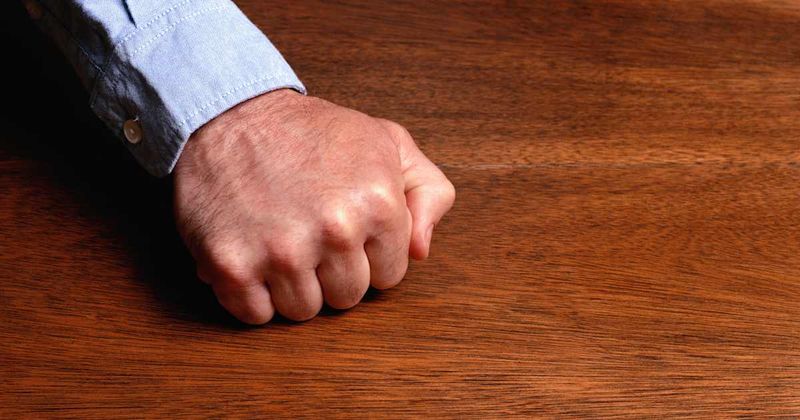
“Well, I haven’t caught a cold all winter—knock on wood!” I caught myself tapping the wooden coffee table after saying this yesterday. This reflexive gesture dates back to the 1800s when Americans believed trees housed protective spirits.
Knocking on wood after expressing hopes or boasting about good fortune was thought to prevent the jealous spirits or fates from hearing and reversing your luck. The practice was particularly common in rural communities where life was precarious and fortune could change with one bad harvest or sudden illness.
The ritual required actual wood—not just any surface would do. Frontier families might keep a special piece of oak or maple specifically for knocking purposes. The number of knocks mattered too: three was considered most effective, representing the Christian Trinity.
4. Four-Leaf Clover Fortune
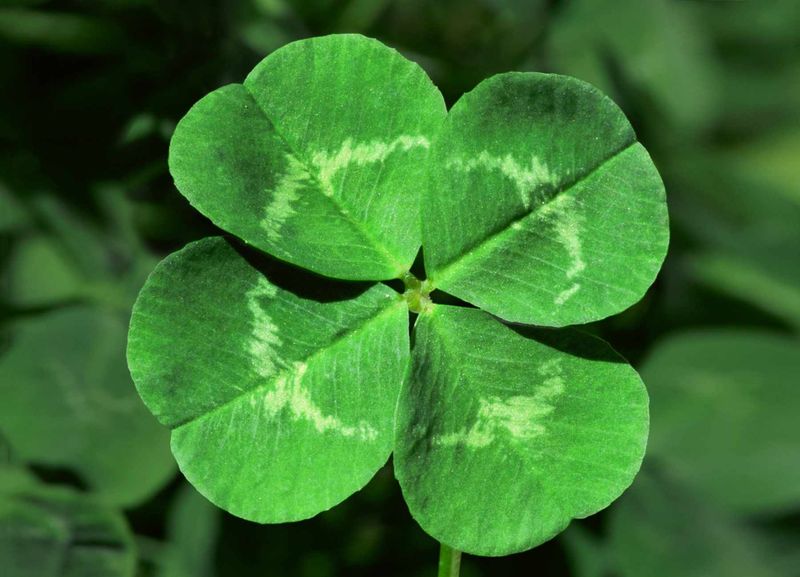
My first four-leaf clover discovery happened when I was eight, and I pressed it in my diary convinced my life would change forever. Americans in the 1800s shared this excitement but took it much more seriously. Children would spend hours combing meadows for this rare botanical anomaly, believing their marriage prospects literally depended on it.
Finding a four-leaf clover wasn’t just good luck—it granted specific powers. The finder could supposedly see fairies, detect evil, and attract romantic prospects. Young women would sew the dried clovers into small pouches worn near their hearts or tuck them into dance cards to attract suitors at social gatherings.
The rarity of four-leaf clovers—about 1 in 10,000 plants—made them precious commodities. Farmers sometimes claimed certain fields on their land produced more of them, charging neighbors a small fee to search there.
5. Mirror-Breaking Dread

The crash of my bathroom mirror last month sent me into an unexpected panic—a reaction centuries in the making. Breaking a mirror in 1800s America wasn’t just an inconvenience; it was a catastrophe believed to bring seven years of misfortune or even signal an impending death in the family.
Mirrors were expensive luxuries back then, making their destruction financially significant. But the supernatural dread far outweighed the monetary loss. The superstition stemmed from the belief that mirrors captured pieces of the soul’s reflection. Shattering one meant fragmenting the soul itself, leaving it vulnerable to malevolent forces.
Families developed elaborate countermeasures against this curse. Some would bury the broken pieces under moonlight, while others would grind the shards to dust and scatter them in running water.
6. Breakfast Singing Curse

Humming my favorite tune while making breakfast this morning, I remembered my great-grandfather’s odd warning about morning melodies. “Sing before breakfast, cry before supper” wasn’t just a quirky saying in 1800s America—it was a firmly held belief that shaped daily behavior.
The superstition warned that morning cheerfulness would be balanced by evening sorrow. In practical terms, this meant children were hushed if they started singing while morning chores were underway. The belief was so widespread that even in wealthy homes where servants prepared meals, family members maintained morning silence until after the first bite was taken.
Some regions had specific variations of this curse. In New England, singing before seven a.m. specifically invited financial hardship, while in southern states, morning singing supposedly attracted snakes to the property.
7. Indoor Whistling Peril

My grandfather would snap “Not in the house!” whenever I whistled indoors as a child. His reaction echoed a serious 1800s superstition that indoor whistling summoned evil spirits or devastating winds to your home. This belief was particularly strong in coastal and rural communities.
Maritime families believed whistling indoors could conjure storms that would endanger sailors at sea. The superstition had practical undertones too—whistling near open flames could cause dangerous drafts in houses lit and heated by fire. But the supernatural fear ran deeper than any practical concern.
The specific dangers varied by region. In New England, indoor whistling supposedly attracted snakes into the home. Southern households believed it brought financial ruin, while frontier families thought it would cause chimney fires.
8. Bird Visitors

Last spring, a sparrow flew through my open window and sent my grandmother into a panic—a reaction straight from the 1800s playbook. Back then, a bird entering your home wasn’t a minor inconvenience but a terrifying omen of death.
The specific meaning varied based on the bird type. A robin foretold death by illness, while a sparrow signaled the passing of a child. Blackbirds were considered the worst visitors, supposedly marking the household’s master for death. The fear was so intense that families would sometimes temporarily abandon rooms where birds had entered until cleansing rituals could be performed.
Prevention methods abounded throughout 19th-century America. Families hung horseshoes above doors and windows to repel avian visitors. Some painted porch ceilings light blue (a tradition still visible in parts of the South) to confuse birds into thinking it was open sky.
9. Nighttime Sweeping Ban
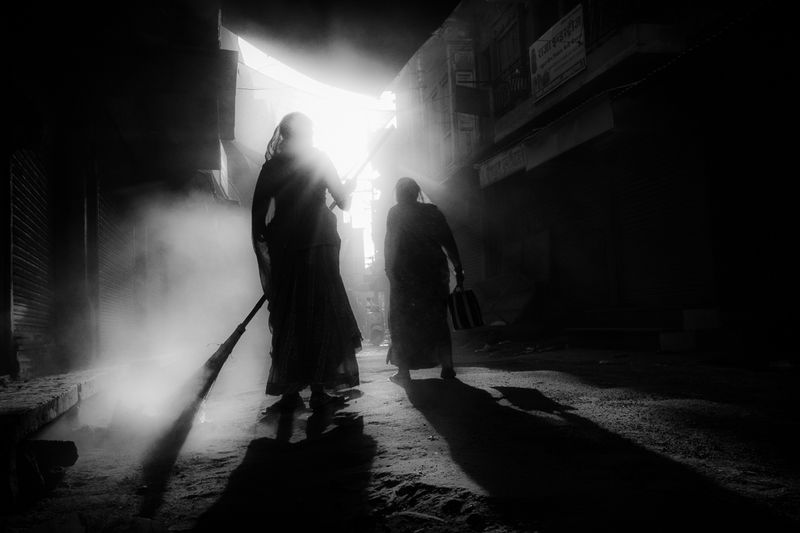
I once reached for a broom after dinner and my grandmother snatched it away with surprising speed. “Never sweep after dark!” she warned, echoing a superstition that dominated 19th-century American households with surprising tenacity.
Sweeping after sunset was believed to brush away your family’s good fortune along with the dirt. The practical origin likely stemmed from poor lighting—sweeping in dim conditions meant missing dirt and potentially breaking items. But the supernatural explanation ran much deeper in the American consciousness.
Many families believed nighttime sweeping would drive away protective spirits that entered homes after dark. Others feared it swept away the souls of sleeping family members, causing nightmares or even death. Some households kept special daytime brooms that were hung up at sunset and never touched until dawn.
10. Snake Dreams Warnings
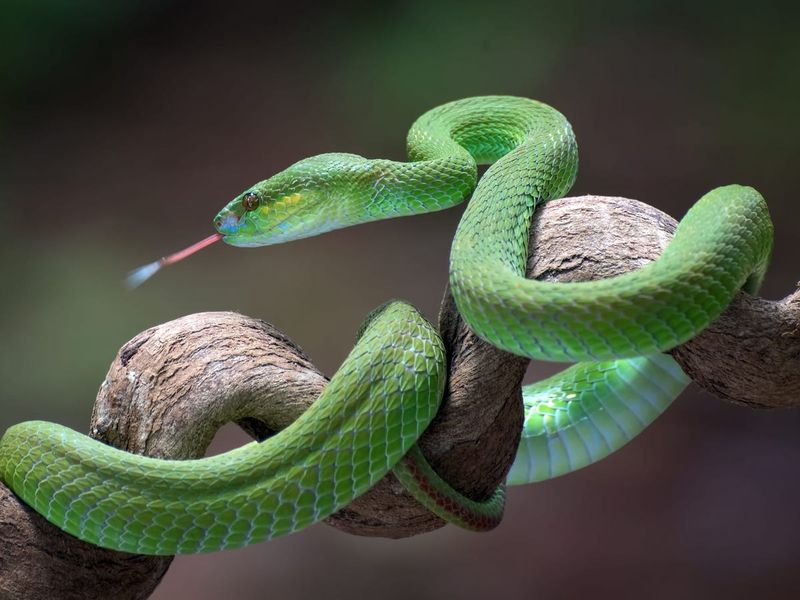
I mentioned dreaming about snakes at breakfast last week and my uncle immediately asked who I’d argued with recently. His reaction stems from the widespread 1800s belief that snake dreams were supernatural warnings about enemies plotting against you.
Dream interpretation was serious business in 19th-century America, with snake dreams considered particularly significant. The specifics mattered enormously: a black snake indicated a secret enemy, while a rattlesnake meant open hostility from someone close. Being bitten in the dream suggested imminent betrayal requiring immediate action.
Families would sometimes alter their social plans based on these nocturnal warnings. A hostess might rearrange dinner seating to separate a family member from someone they’d dreamed of as a snake. Some communities maintained “dream books” recording interpretations passed down through generations.
11. Ladder-Walking Hazard
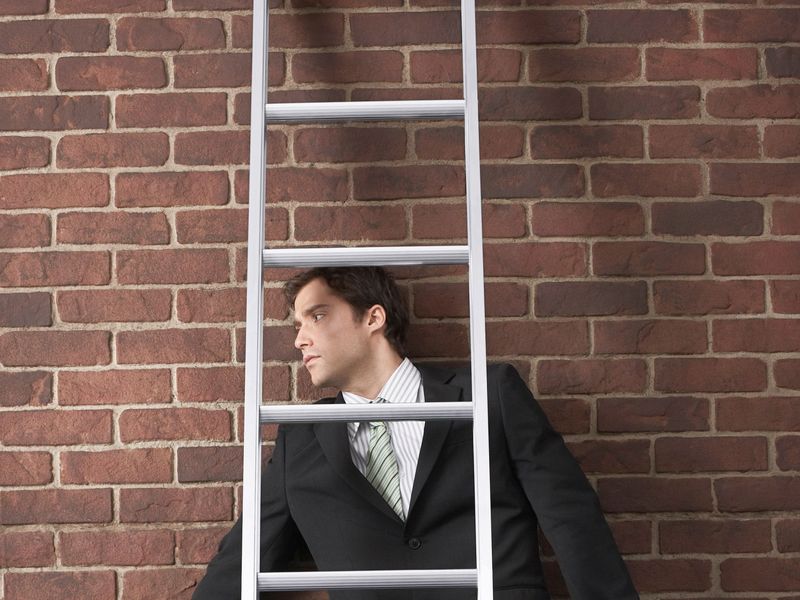
I instinctively walked around a ladder propped against my neighbor’s house yesterday, a habit inherited from generations past. During the 1800s, walking under a ladder wasn’t just considered unsafe—it was believed to doom you to misfortune or even the gallows.
The triangular space formed by a ladder against a wall represented the Holy Trinity to many Americans of the era. Walking through this sacred geometry was considered blasphemous, inviting divine punishment. The superstition also had practical origins—workers above might drop tools or materials on passersby.
The consequences varied by region and religious background. In some communities, walking under a ladder specifically meant you would never marry. Others believed it guaranteed imprisonment within the year. If someone accidentally walked under a ladder, complex countermeasures followed.
12. Black Cat Crossing Dread
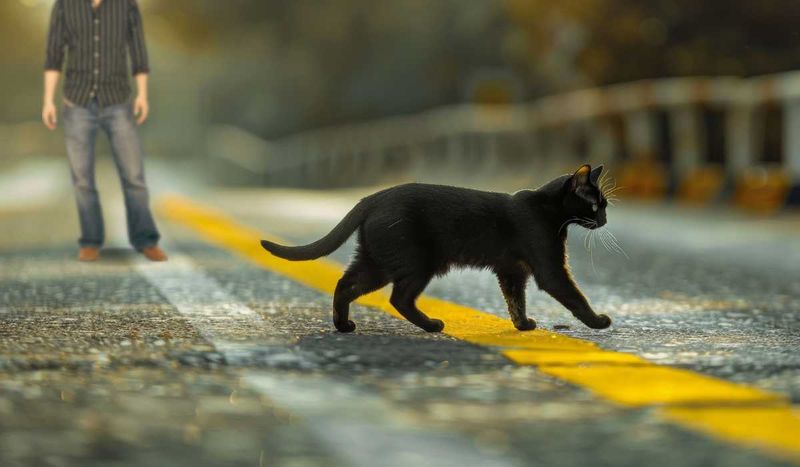
My heart still skips when a black cat crosses my path—a reflex that would have been considered life-saving in 1800s America. Back then, encountering a black cat wasn’t just unfortunate; it was a terrifying omen requiring immediate defensive action.
The direction of the cat’s crossing determined your fate. A cat crossing from right to left brought terrible luck, while left to right was occasionally considered positive in some regions. People would literally turn back from important journeys if a black cat crossed their path. Farmers wouldn’t plant and merchants wouldn’t sign contracts after such an encounter.
Countermeasures varied widely across American communities. Some would walk backward ten steps after seeing a black cat. Others would spit on the ground or make the sign of the cross. In parts of New England, carrying a pocket-sized Bible became common specifically as protection against black cat encounters.
13. Hat-on-Bed Misfortune
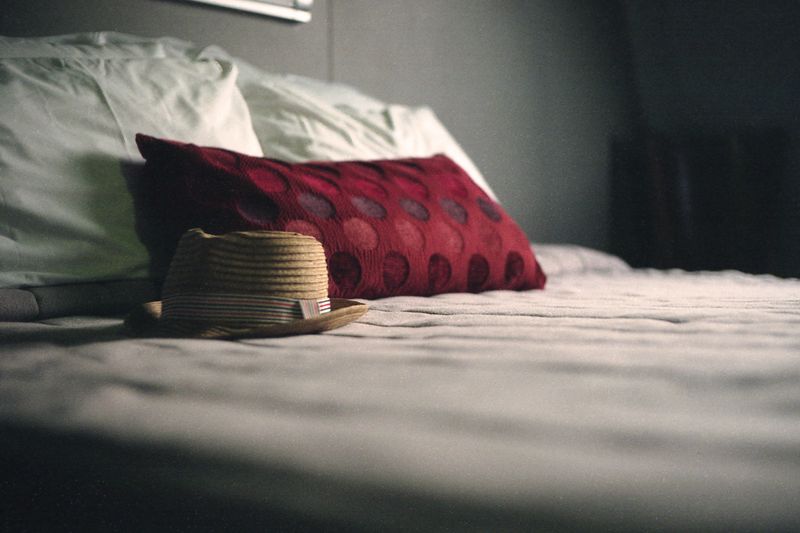
I tossed my cap on the hotel bed last month and my grandmother’s voice immediately echoed in my head: “Hats belong on hooks, not beds!” This seemingly arbitrary rule was deadly serious in 1800s America, where placing a hat on a bed invited disaster.
The superstition likely originated from practical concerns—hats collected dirt, parasites, and disease from public spaces. But the supernatural explanation was far more terrifying to 19th-century Americans. They believed evil spirits clung to headwear and could transfer to beds, causing nightmares or illness.
Some believed the specific consequence was that the hat’s owner would die within the year. Others feared it meant someone currently sleeping in that bed would fall ill. Particularly superstitious households maintained special hat racks near entryways to prevent the temptation of temporary bed placement.
14. Water Spilling Sorrow

I knocked over a glass at dinner last night and my mother’s face fell—a reaction rooted in old beliefs. In 1800s America, spilled water wasn’t just a mess; it was a supernatural warning of impending tears and heartache.
The amount and pattern of spillage were carefully interpreted. A large spill suggested a significant tragedy, while droplets indicated minor sorrows. Water spilled in a circular pattern supposedly predicted a death in the family, while straight-line spills foretold financial troubles. Some regions believed water spilled at breakfast specifically prophesied sorrow before sunset that very day.
Countermeasures were taken with utmost seriousness. Many would immediately spill salt on the wet spot to absorb both the water and the bad luck. Others would quickly touch the spill with their bare hand while silently reciting a protective prayer.
15. Egg Dreams Prosperity
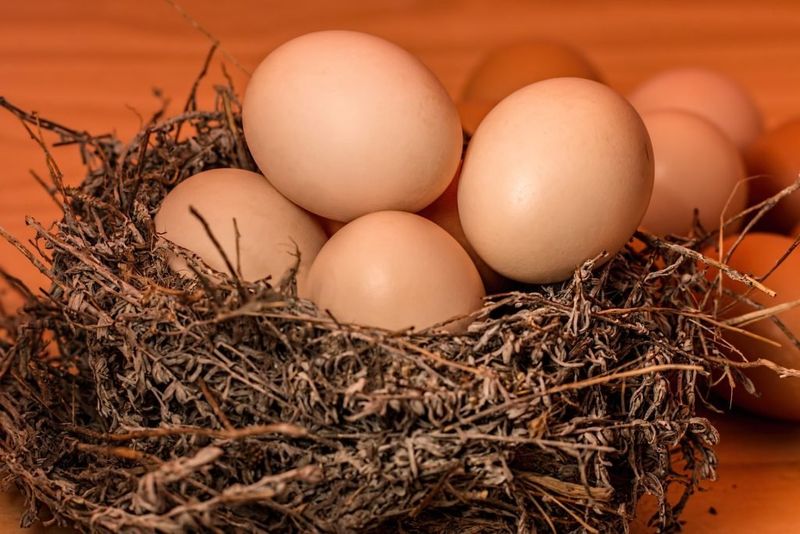
Last week I dreamed of making an omelet and woke up checking my lottery tickets—a modern version of a very old belief. In 1800s America, dreaming of eggs wasn’t just pleasant; it was considered a divine message about incoming wealth.
The condition of the eggs in the dream mattered tremendously. Whole eggs predicted new money, while broken eggs suggested recovering lost valuables. Multiple eggs indicated the degree of fortune coming—the more eggs, the greater the windfall.
Americans took these dreams so seriously that financial decisions were sometimes based on them. A farmer might invest in new equipment after an egg dream, or a merchant might extend credit to someone who reported dreaming of eggs. Dream diaries often had special sections just for recording egg dreams and their outcomes.
16. Friday Nail-Cutting Prohibition
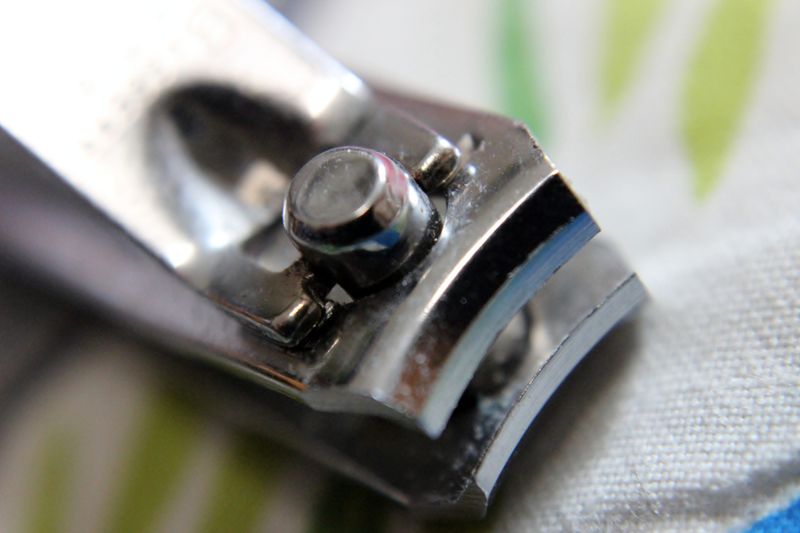
My grandmother absolutely refused to cut her nails on Fridays—a quirk that confused me until I learned about its historical roots. Throughout 1800s America, trimming fingernails or toenails on Fridays was considered an invitation to disaster.
The superstition connected nail-cutting with crucifixion day, making it disrespectful to religious traditions. Different communities assigned specific consequences to this taboo. Some believed Friday nail-cutting brought general bad luck, while others specified it would cause disappointment in love or failure in business dealings.
The most common belief was that cutting nails on Friday meant you would “cut your sorrow” the following week—essentially guaranteeing grief. Practical schedules emerged around this superstition, with Sunday after church becoming the traditional American nail-cutting day.
17. Horseshoe Protection Power
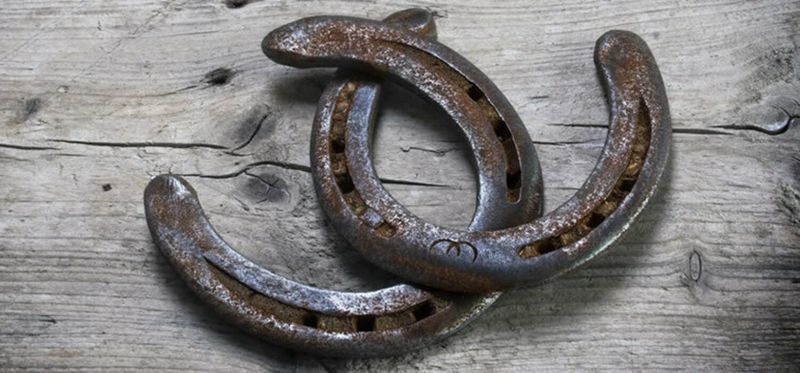
I spotted a horseshoe hanging above my uncle’s barn door last summer—a tradition with roots deeper than I realized. Finding or hanging horseshoes in 1800s America wasn’t just decorative; it was serious spiritual insurance against evil and misfortune.
The horseshoe’s power came from multiple sources: its crescent moon shape (connected to feminine divine protection), its iron material (believed to repel evil spirits), and its association with horses (symbols of strength and good fortune). Proper hanging was crucial—points up stored luck, while points down poured protection over entryways.
Americans developed elaborate rituals around horseshoes. Finding one with nails still attached multiplied its lucky properties. Some would dip found horseshoes in water under a full moon to “activate” their protective powers.
18. Rain on Wedding Days
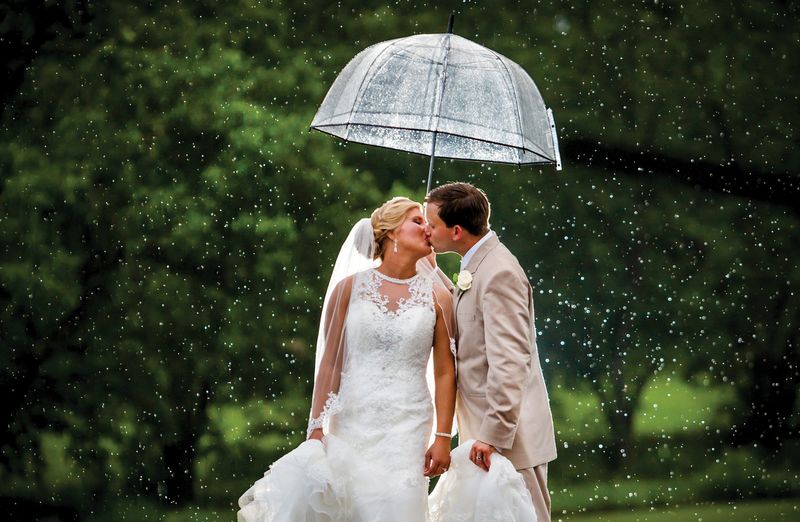
My cousin’s wedding downpour last June had older relatives nodding knowingly—a reaction stemming from beliefs popular in 1800s America. Back then, rain on wedding days wasn’t considered unfortunate as modern brides might think, but a powerful blessing and fertility omen.
The superstition held that wet knots were harder to untie, symbolizing a marriage that would endure difficulties. The timing and intensity of the rain carried specific meanings. Morning showers predicted financial prosperity, while afternoon rain foretold healthy children.
Some communities developed rain-related wedding customs based on this belief. Brides would save rainwater from their wedding day in special bottles as luck charms for difficult times. Others would dip their wedding rings in collected rainwater before the ceremony for extra blessing.
